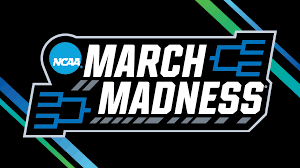 “March Madness” is a phrase that ignites excitement in the hearts of basketball fans nationwide. The NCAA Men’s Basketball Tournament, held annually in March, is a time for thrilling sports action and friendly competition, office pools, and, unfortunately for some, potential gambling-related issues in the workplace.
“March Madness” is a phrase that ignites excitement in the hearts of basketball fans nationwide. The NCAA Men’s Basketball Tournament, held annually in March, is a time for thrilling sports action and friendly competition, office pools, and, unfortunately for some, potential gambling-related issues in the workplace.
As brackets are filled out and bets are made, the line between harmless fun and workplace misconduct can blur. Let’s dive into the phenomenon of March Madness gambling in the workplace, its implications, and how employers and employees can navigate this exciting yet potentially problematic time. The gambling market is expected to grow to $744 billion by 2028!
March Madness captivates millions of basketball enthusiasts each year. With 68 college basketball teams competing for the national championship, there’s no shortage of drama and excitement. This frenzy extends beyond living room couches and sports bars into workplaces nationwide.
Workplace Gambling: Where’s the Line?
Office pools, where colleagues contribute money to fill out brackets predicting tournament outcomes, are a common tradition during March Madness. While participating in such pools can foster camaraderie and friendly competition, it’s essential to recognize the potential legal and ethical implications—not to mention a lack of productivity!
Legal and Ethical Concerns: Gambling laws vary by state in the United States. While some states have legalized sports betting, others strictly prohibit it. Employers must be mindful of the legal landscape in their jurisdiction to avoid inadvertently violating gambling laws. Workplace gambling can create a host of ethical dilemmas. Employees may feel pressured to participate, leading to discomfort or conflict in the workplace. Employers play a crucial role in setting the tone and boundaries surrounding March Madness activities in the workplace. Here are some steps employers can take to manage gambling-related risks:
1. Establish Clear Policies: Implement policies that clarify the organization’s stance on gambling and outline acceptable behavior during March Madness. Communicate these policies to all employees to avoid misunderstandings. Supervisors and company leadership should model appropriate behavior and refrain from participating in or promoting activities that could be construed as gambling in the workplace.
2. Promote Alternatives: Encourage alternative forms of engagement, such as bracket challenges without monetary stakes or team-building activities centered around the tournament. Be mindful of coworkers who choose not to participate in March Madness activities and refrain from pressuring or excluding them.
3. Employee Guidelines: Employees are responsible for ensuring that March Madness festivities remain enjoyable and respectful. Here’s how employees can contribute to a positive workplace environment. Familiarize yourself with local gambling laws and company policies to avoid inadvertently engaging in illegal activities.
4. Prioritize Work: Remember that work responsibilities should precede March Madness distractions. Avoid excessive time spent on tournament-related activities during working hours. Loss of productivity could be a result of March Madness gambling!
March Madness brings a unique blend of excitement and camaraderie to workplaces annually. However, the thrill of the tournament should not overshadow legal and ethical considerations related to workplace gambling. By establishing clear policies, promoting responsible behavior, and fostering a culture of respect and inclusivity, employers and employees can navigate the madness of March with integrity and professionalism.
Reference:
Workplace Gambling Policy (SHRM, 2023) https://www.shrm.org/topics-tools/tools/policies/workplace-gambling-policy
Reminder on Federal Workplace Gambling Prohibitions (3/21/2022). https://www.doi.gov/ethics/reminder-federal-workplace-gambling-prohibitions
Global Gambling Report 2024 (January 2024) https://www.thebusinessresearchcompany.com/report/gambling-global-market-report
